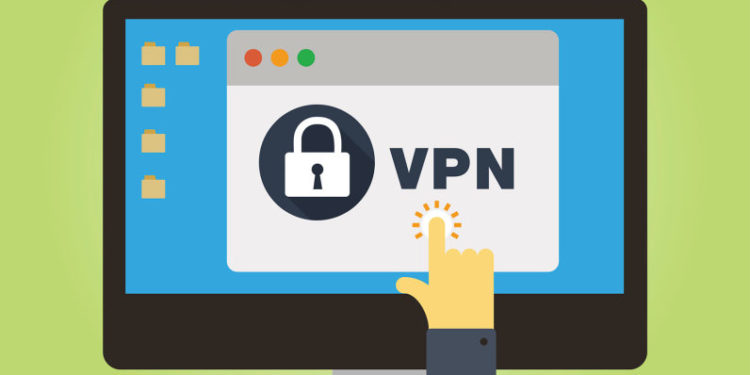Virtual Private Networks or VPNs are more important than ever right now to prevent attacks hackers are focusing on while people are working remotely.
Due to coronavirus, people in many places around the country are still working from home, and people are also socializing and staying in touch with friends and family virtually as well.
While there are benefits to remote work, it can create cybersecurity risks.
Companies have to proactively address these risks and train employees on how to safeguard against them.
One of the best ways to do that is with the use of a VPN, and the following are some things to know.
What is a VPN?
A Virtual Private Network (VPN) lets you access the internet more securely and more privately than you would be able to otherwise. In some countries, VPNs are also used as a way to go around content restrictions or censorship.
A VPN creates an encrypted connection between a computer or other device and the server.
You can get anonymity when using a VPN, and it’s sometimes compared to a tunnel through which you can access the internet. A VPN hides your IP address and location as well. Your actual IP address is replaced with one randomly assigned by the VPN.
VPNs can cause your connection to slow down, though, because it puts one more step between you and being online. If you’re not gaming, this isn’t usually a big concern.
A VPN can be especially helpful if you’re working or doing anything using a public Wi-Fi network. It’s possible that anyone on that network could be watching the traffic, and they could ultimately access your information.
Should You Have a VPN On All Of Your Devices?
You should likely have a VPN across all of your devices.
There are companies that offer VPNs for smartphones, and it can be useful to have since your phone is connected to Wi-Fi, probably at all times.
Limitations of a VPN
Even with a VPN, it is possible for your behavior to be tracked online.
For example, even if you have a VPN, companies might be able to track your internet usage after you leave their site because of cookies.
VPNs and Remote Work
Many companies are beginning to offer VPN connections to protect network data and connections for remote and telecommuting employees.
When companies provide a VPN, employees can then securely access their employer’s internal data and network from anywhere.
Companies do need to have acceptable use policies in place that apply specifically to employees working remotely, however.
As a result, forward-looking employers are creating specific VPN usage policies that outline what the responsibility is of IT to deploy VPNs, and outlines acceptable use guidelines on both personal and corporate devices.
VPNs and Traveling
People are traveling less right now, but when travel picks back up, VPNs are relevant in those situations as well.
When you’re traveling, you’re probably using free, public Wi-Fi everywhere you go from restaurants to your hotel and in airport lounges.
That opens you up to significant risks.
Unencrypted data, including your credit card numbers, passwords, and other identifying information, can be stolen.
Choosing a VPN
If you’re an employer and you want to equip your employees with a VPN, or you’re looking to get one on your own, the following are factors to consider.
- You want to ensure that a VPN that you choose has the apps you need for the devices you own. For example, if you use an iPhone and a Mac, you want to make sure you choose a VPN platform supporting iOS.
- Some VPN platforms restrict simultaneous connections or make you pay more. You should think about the number of devices that you might be using at any given time and choose accordingly.
- If you frequently travel you need to choose a VPN that works internationally. Some VPNs don’t work in China, but if you can find one that will work there, theoretically, it’s probably going to work everywhere.
- A VPN is going to slow down your connection because your data is going through another server instead of going straight to its destination. With this in mind, make sure you find a VPN that’s as fast as possible to offset some of this slowdown.
Finally, choose a VPN that’s easy to install and subsequently easy to use.
Most of us rely heavily on our devices for work and everything else, especially right now. It’s important to protect your information, your employer’s information, and your privacy, and a VPN can help with those objectives.


